Article: Zsuzsanna Deák
Translation: Nóra Fehér
At the end of April, another world star will arrive in Hungary: Sergei Krylov will play Mendelssohn s Violin concerto and Bartók’s Rhapsody No.1 for the audience in Győr and Debrecen, but the concert will also feature a terrifying Witches’ Sabbath and a naughty Hungarian folk song.
The Russian violinist’s playing is characterised by brilliant virtuosity and a profound, poetic musicality. He performs with the world’s most famous orchestras, including the Santa Cecilia Orchestra in Rome, the Budapest Festival Orchestra, the Orchestra of the Mariinsky Theatre in St Petersburg, the Orchestra of the Philharmonia in Paris and the Staatskapelle in Dresden. He not only plays the violin, but also conducts and sometimes leads the orchestra while playing the violin.
The celebrated artist will soon be back home again: he will appear at two concerts during the Bartók Spring International Art Weeks, partnering Imre Kollár and the Kodály Philharmonic Orchestra as soloist in Bartók’s Rhapsody No. 1 and Mendelssohn’s magnificent Violin Concerto. He will give concerts in Debrecen on 30 April and in Győr on 1 May.
Krylov’s playing is at once humble and triumphant, clever and emotional, intimate and full of sparkling humour. Born into a family of musicians in Moscow, he began playing the violin at the age of five. He was already touring the world as a teenager and has won numerous international competitions, including the Antonio Stradivari Competition in Cremona and the prestigious Fritz Kreisler Competition in Vienna. His work is influenced by his friend and fellow musician, one of the most influential instrumentalists of the 20th century, Mstislav Rostropovich, and his music radiates the same vital joy and intelligence.
“Sergei Krylov is one of the five greatest violinists of our time”
– wrote the legendary cellist.
Krylov is also an active conductor and has been a professor at the Lugano Music Academy since 2012. In addition to the classical repertoire, he has also worked with Sting and dedicated a DVD of their collaboration, Twin Spirits, to the memory of Robert Schumann. His repertoire is incredibly broad: from baroque to contemporary music, he has all styles and periods at his fingertips. He is currently one of the most competent interpreters of Tchaikovsky’s and Prokofiev’s violin concertos.
This time, Hungarian audiences can experience his intuitive music-making in two Central European pieces. The concert’s overture, however, will not leave Russian music out of the programme of the two upcoming concerts. The works for violin will be preceded by Musorgsky’s drifting piece Night on a Barren Mountain, an orchestral fantasia. This music usually inspires even those who are not otherwise fans of so-called “classical music”. Used in many well-known films, it is a powerful musical depiction of a Witches’ Sabbath, guaranteed to get the heart rate up and keep the listener enthralled.
This adrenaline rush is followed by one of the most popular violin concertos in music history, Mendelssohn’s haunting masterpiece full of beautiful melodies. The Violin Concerto in E minor, composed in the Romantic style, took the composer six years to write and was finally completed in 1844. One of the most important and influential concertos of the Romantic era, it remains one of the most frequently played violin concertos to this day. Formally it follows the fast-slow-fast structure of the classical concertos, but is innovative in many ways. Contrary to what had been the custom, the movements follow each other without a break, and the solo violin is heard immediately at the very beginning of the piece – playing the melody in E minor that Mendelssohn wrote about to his friend, the violinist Ferdinand David, to whom he dedicated the work:
“This melody will not let you be still”.
Its exhilarating cadenza – written in its entirety by the composer, leaving no room for improvisation by the soloist – was also considered modern for its time. One of the most famous violinists of all time, Joseph Joachim, said as much in 1906:
“The Germans have four violin concertos. The greatest is clearly Beethoven’s. Brahms impresses with his seriousness. The richest and most charming is by Max Bruch. But the most moving, the jewel of the heart, is Mendelssohn’s.”
After the interval, Sergei Krylov takes up the violin again and shows his virtuosity in a piece of music that is particularly dear to Hungarian audiences. He will be playing Bartók’s Rhapsody No 1, which the composer first composed for violin and piano in 1928 and then reworked for violin and orchestra a year later. In this work, written for József Szigeti, Bartók incorporates elements of folk music. It contains the slow-fresh contrasts of verbunk music, the influence of contemporary gypsy music, the rich melodic world of Marosi and the bitters of Orvátfalvi collected by Béla Vikár.
Both concerts will close with Leó Weiner’s Suite (Hungarian Folk Dances), which, in the tradition of the Bartóki, transposes elements of folk music into a modern concert hall form. The sparkling, playful fourth movement of the suite is a mischievous folk song, “Pinch their ass, bug…”. It’s brilliant music that will leave the listener feeling exhilarated and recharged.
The exciting programme, the two virtuoso pieces for solo violin and orchestra, which are also full of beautiful melodies, and the world-famous soloist guarantee an experience of a lifetime.
Mussorgsky: Night on the Bare Mountain
Mendelssohn: Violin Concerto in E minor, Op. 64
Bartók: Rhapsody No. 1, Sz. 87, BB 94
Weiner: Suite (Hungarian Folk Dances), Op. 18
Conductor: Imre Kollár
Article: Zsuzsanna Deák
Translation: Nóra Fehér

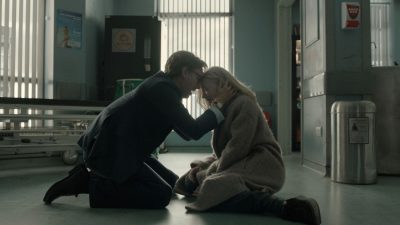

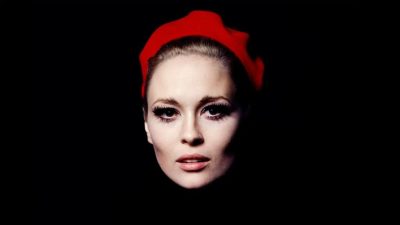

















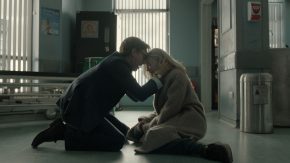


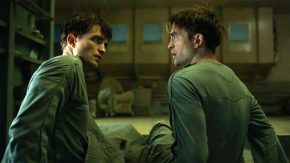
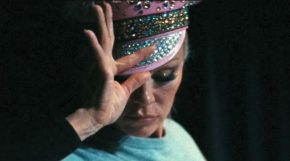
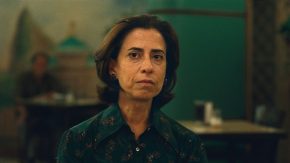
Comments